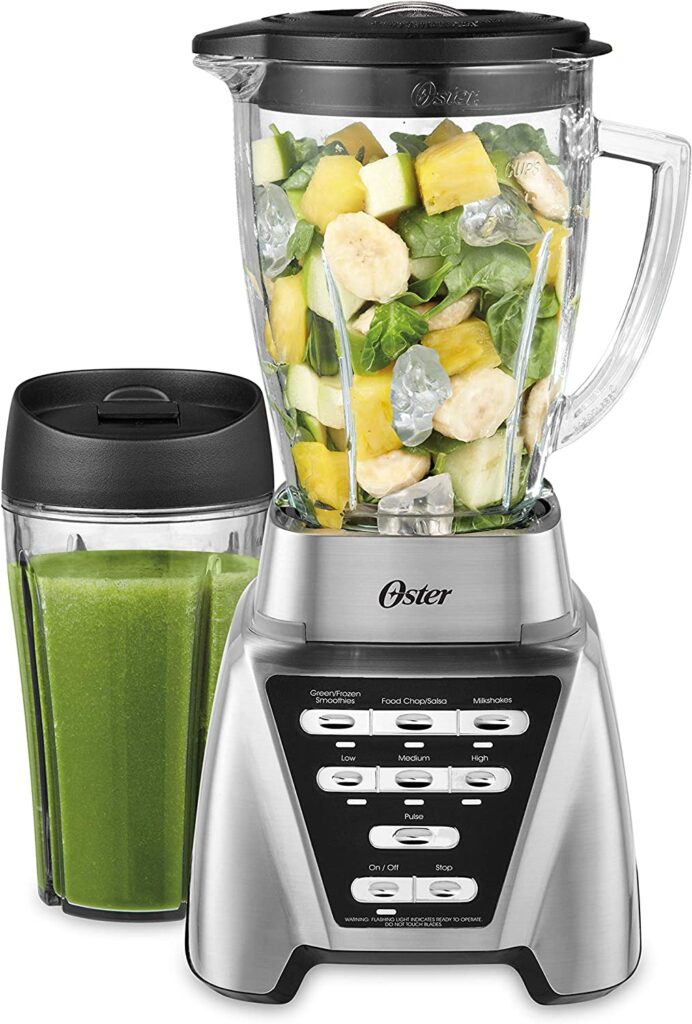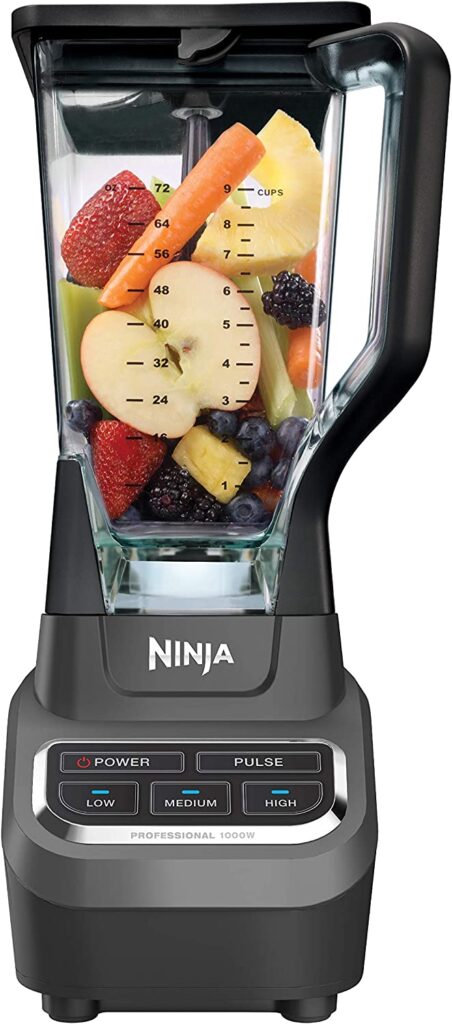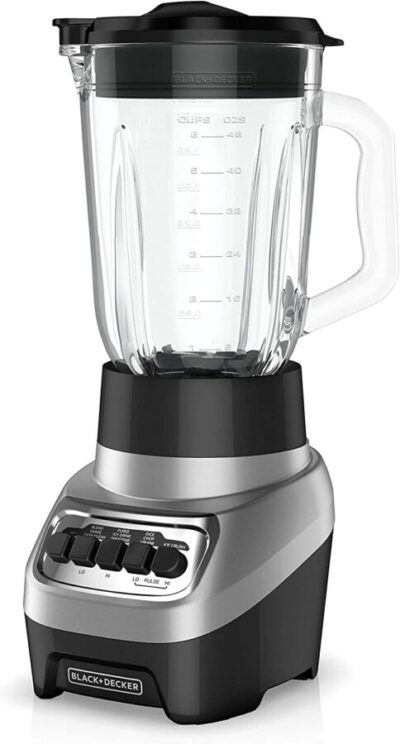Are glass blenders better than plastic?
Plastic Vs Glass: Which Blender Is Better?
Blenders are versatile kitchen appliances used for blending, mixing, and pureeing ingredients to create smoothies, soups, sauces, and more. One common point of contention among consumers is whether glass blenders are superior to plastic ones. In this discussion, we will review the characteristics, benefits, and drawbacks of both glass and plastic blenders to determine which may be the better option for your needs.
Blender glass vs plastic
Glass blenders are better than plastic because they are durable and also very easy to clean compared to plastic. On the other hand, plastic is less expensive compared to glass blenders. The usage, features and preferences of user will highly determine which one to choose.

Related Article: Vitamix blenders are so expensive
What is a Blender?
A blender is a kitchen appliance used to mix, chop, and blend food and other substances. Many different types of blender materials are available in the market, but the two most common materials are plastic and glass. Each type has its advantages and disadvantages, so it’s important to choose the right one for your needs.
Plastic blenders are less expensive than glass blenders and are often lighter in weight. They’re also less likely to break if dropped. However, plastic can absorb flavors and smells from food, so it’s important to clean your blender thoroughly after each use.
Glass blenders are more durable than plastic ones and won’t absorb flavors or smells. They’re also easier to clean since you can simply put them in the dishwasher. However, glass blenders are heavier than plastic ones and can be more expensive.
Glass Blenders
Glass blenders feature a blending jar made from tempered glass, which is resistant to thermal shock and scratches. The transparency of glass allows users to monitor the blending process easily. Glass jars are typically heavier than their plastic counterparts but offer greater durability and longevity.
Benefits:
- Durability: Glass blenders are less prone to scratching and staining compared to plastic blenders, maintaining their clarity and cleanliness over time.
- Safety: Glass is non-toxic and inert, meaning it won’t leach harmful chemicals into food, making it a safer option for blending hot liquids or acidic ingredients.
- Ease of Cleaning: Glass jars are generally easier to clean and are dishwasher-safe, allowing for hassle-free maintenance.
- Aesthetic Appeal: Many users appreciate the sleek and elegant look of glass blenders, which can complement modern kitchen decor.
Drawbacks:
- Weight: Glass blender jars are heavier than plastic ones, which may make them more difficult to handle, especially when full.
- Fragility: While tempered glass is sturdy, it is still more prone to breakage than plastic, especially if dropped or subjected to sudden temperature changes.
- Cost: Glass blenders tend to be more expensive upfront compared to plastic blenders.
Plastic Blender
Plastic blenders feature blending jars made from BPA-free plastic, which is lightweight and shatterproof. Plastic jars are available in various colors and designs, offering versatility in aesthetic preferences.
Benefits:
- Lightweight: Plastic blender jars are lighter and easier to handle than glass ones, making them ideal for users who value convenience and portability.
- Affordability: Plastic blenders are generally more budget-friendly than glass blenders, making them accessible to a wider range of consumers.
- Shock Absorption: Plastic jars are less likely to break or shatter if accidentally dropped, reducing the risk of injury and replacement costs.
Drawbacks:
- Staining and Odors: Plastic blender jars are more prone to staining and retaining odors from certain ingredients, such as spices or strong-smelling foods.
- Durability: Over time, plastic blender jars may become scratched or cloudy, detracting from their aesthetic appeal and potentially harboring bacteria.
- Safety Concerns: While BPA-free plastic is considered safe for food contact, some users may still have concerns about potential chemical leaching, especially when blending hot liquids or acidic ingredients.

Related Article: Are vacuum blenders worth it?
Comparison
- Durability: Glass wins in the long run, but plastic handles accidental drops better.
- Health: Glass is the safer choice for food preparation.
- Aesthetics: Glass exudes elegance, while plastic is more functional.
- Price: Plastic is budget-friendly, but glass offers premium appeal.
Glass blender vs plastic, why choose one over the other?
There are a few things to consider when making your decision.
- First, think about what you will be using your blender for. If you only plan on making smoothies or shakes, then a plastic blender might be the better option since it is less expensive and easier to clean.
- If you want to use your blender for more than just drinks, then a glass blender might be a better choice since it can handle tougher blending jobs like pureeing vegetables or grinding coffee beans.
- Another thing to keep in mind is how often you will be using your blender. If you plan on using it daily, then a durable glass blender might be the better investment since it will last longer. However, if you only plan on using your blender occasionally, then a cheaper plastic model might suffice.
- Finally, think about what kind of finish you prefer for your kitchen appliances. A stainless steel or chrome finish can give your kitchen a more modern look, while a glass blender can give it a more classic feel. Ultimately, the decision comes down to personal preference and what will best match the rest of your kitchen appliances.

Frequently Asked Questions
1. Are glass blenders safer for hot liquids?
Glass blenders are generally considered safer for blending hot liquids because glass is more heat-resistant and less likely to leach chemicals compared to plastic. However, it’s essential to handle hot liquids with care to prevent accidents.
2. Can I blend acidic ingredients in a plastic blender?
While BPA-free plastic blender jars are designed to be safe for food contact, some users may prefer to avoid blending highly acidic ingredients in plastic jars to minimize the risk of chemical leaching. Glass blenders offer a more inert and non-reactive option for acidic foods.
3. Are plastic blenders dishwasher-safe?
Most plastic blender jars are dishwasher-safe, but it’s essential to refer to the manufacturer’s instructions for specific care and cleaning recommendations. Handwashing with warm, soapy water is also a suitable method for cleaning plastic blender jars.
4. Do glass blenders produce smoother blends than plastic blenders?
Both glass and plastic blenders are capable of producing smooth blends, depending on the power and design of the blender. The material of the jar itself is unlikely to significantly affect the texture of the blend.
5. Are glass blenders worth the extra cost compared to plastic blenders?
The decision between glass and plastic blenders ultimately depends on individual preferences, priorities, and budget constraints. While glass blenders may be more expensive upfront, they offer benefits such as durability, safety, and ease of cleaning that some users may find worth the investment.
Related Article: Vitamix blenders are so expensive?
Conclusion regarding “Are glass blenders better than plastic? “
In conclusion, both glass and plastic blenders have their unique characteristics, benefits, and drawbacks. Glass blenders are prized for their durability, safety, and aesthetic appeal, while plastic blenders offer affordability, lightweight convenience, and shatterproof construction. When choosing between the two, consider factors such as your blending needs, safety concerns, and budgetary considerations to determine which type of blender is the best fit for you. Ultimately, the “better” option depends on your individual preferences and priorities. 🍹🥦🍓

